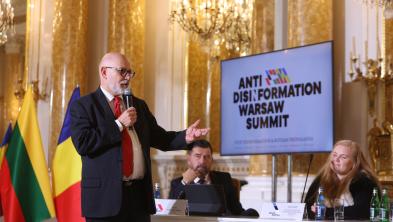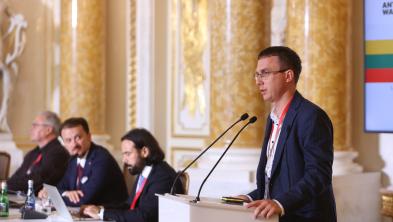Video reports
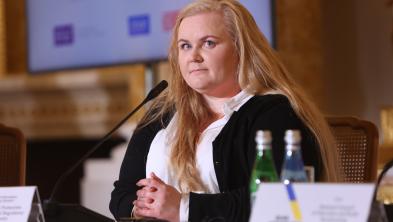
Summit against Disinformation: The European Internet Services Act will help in the fight against disinformation in Estonia
Estonia hopes that the Telegram platform which is the most aggressive in publishing Kremlin's propaganda will be classified by the European Commission as a large online platform, obliged to control and moderate the distributed content.
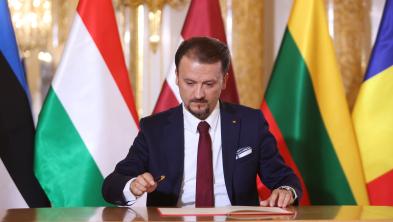
Romania's representative at the Warsaw Summit: the signatories of the Warsaw Declaration are on the front line in the fight against disinformation
"Disinformation is a huge challenge for the entire EU, but it is currently hitting the countries of its eastern flank the most. It is very important that the representatives of so many countries of this region of Europe are present here in Warsaw and develop a common strategy to defend our basic values: freedom of speech and freedom of the press" – explains Valentin-Alexandru Jucan, Vice-President of the Romanian National Audiovisual Council.
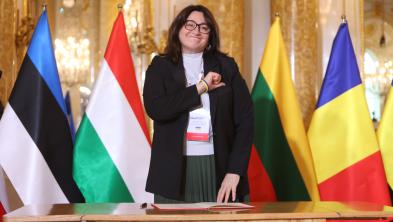
Ukraine's representative at the Warsaw Summit: Putin will do everything to break the West's solidarity with the fighting Ukraine
"In the fight against pervasive Russian disinformation, we must not forget that freedom of the press and speech are priceless values. However, propaganda has nothing to do with reliable information, and it is not journalists, but Putin's security service, who are behind the fake news reaching our societies. Therefore, we must constantly remind our Western friends and allies that Moscow's narrative is based solely on lies"- Olha Herasymiuk, chairwoman of the National Broadcasting Council of Ukraine, warns.
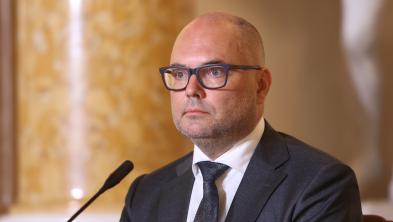
Latvia's representative at the Warsaw Summit: nothing unites our part of Europe as much as the fight against fake news from the Kremlin
"The fight against Russian disinformation has been one of the priorities of the institutions responsible for the stability and credibility of the Latvian media market for at least four years, so I am glad that other countries of the region present at this summit in Warsaw also present a similar attitude and determination," emphasizes Ivars Abolins, head of Latvia's National Electronic Media Council.
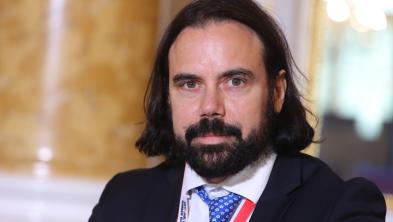
Summit against Disinformation: Hungary expects legal changes at European level
Hungarian law does not allow for the amendment of the statute of the National Office for Media and Telecommunications. And at the moment, this office does not have the competence to conduct cases regarding disinformation.
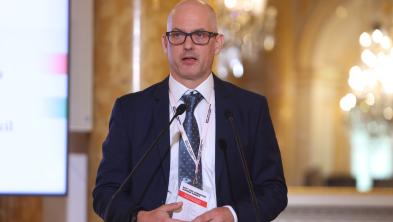
Summit Against Disinformation: Most information in the media is true
Hungarian National Office for Media and Telecommunications adapts its regulations to the emerging platforms and sees new challenges. As emphasized by Balazs Jo, Deputy Director for Monitoring and Analysis of Programs at the National Office for Media and Telecommunications Council Media, the demand for controlling new platforms is growing, but regulators do not have the tools or knowledge, and sometimes also the legal system.
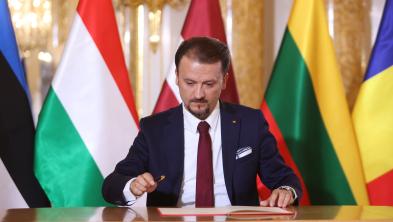
Romania's representative at the Warsaw Summit: the signatories of the Warsaw Declaration are on the front line in the fight against disinformation
"Disinformation is a huge challenge for the entire EU, but it is currently hitting the countries of its eastern flank the most. It is very important that the representatives of so many countries of this region of Europe are present here in Warsaw and develop a common strategy to defend our basic values: freedom of speech and freedom of the press" – explains Valentin-Alexandru Jucan, Vice-President of the Romanian National Audiovisual Council.
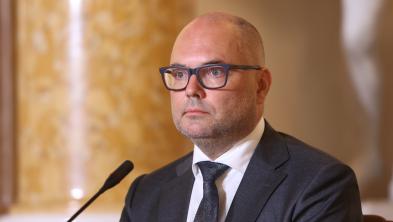
Latvia's representative at the Warsaw Summit: nothing unites our part of Europe as much as the fight against fake news from the Kremlin
"The fight against Russian disinformation has been one of the priorities of the institutions responsible for the stability and credibility of the Latvian media market for at least four years, so I am glad that other countries of the region present at this summit in Warsaw also present a similar attitude and determination," emphasizes Ivars Abolins, head of Latvia's National Electronic Media Council.
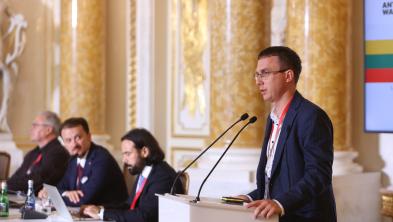
Lithuanian representative at the Warsaw summit: The Balts have long experience in fighting Kremlin's propaganda
"Cooperation between the Baltic countries in the fight against Russian propaganda and disinformation has been excellent for a long time, which is why I am very happy to extend this type of cooperation to other countries in the region, including Poland. It is very important that we constantly exchange experiences and learn from each other to combat this threat" – says Vadim Gasperskij, Head of the Legal Department at the Commission for Radio and Television in Lithuania.
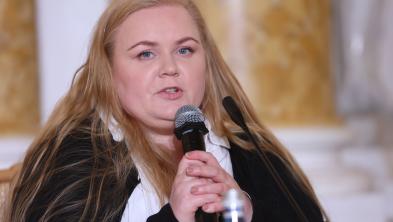
Summit Against Disinformation: in Estonia, the Telegram platform is the tube of Russian disinformation
Estonia is one of the countries where Russian disinformation is particularly aggressive. The Kremlin's propaganda is disseminated through social media, especially the Telegram platform. The Estonian regulator hopes that the European Commission, in accordance with the Act on Internet Services (DSA), which will enter into force in February 2024, will qualify Telegram as a large online platform, which will be subject to the obligation to control content.
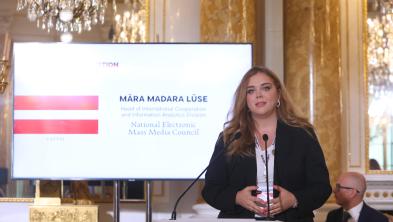
Our legal systems must be merciless to fake news
"Latvia, like Lithuania and Estonia, is particularly exposed to aggressive Russian disinformation — not only due to its geographical location, but also a significant number of Russians living in our country. That is why the Latvian legal system is very strict about blocking TV channels, radio stations, and social media profiles that duplicate the Kremlin's propaganda. Riga, as the first capital in the EU, decided to significantly reduce the operation of Russia Today television, and we declare that this was not our last word"– said Mara Nadara Luse, Head of the Department for International Cooperation and Information Analysis in the Latvian Council of National Electronic Media.
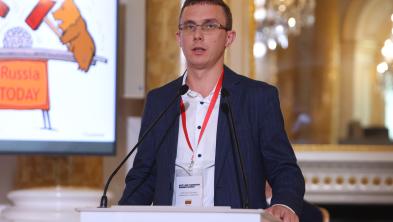
Lithuania wants to share experience in effectively fighting fake news
The start of Russia's full-scale aggression against Ukraine further mobilized us — we banned a number of TV programs affiliated with the GAZPROM concern and adopted a strict law limiting the activities of the media financed by the governments of Russia and Belarus. We are open to sharing these experiences with our allies, as well as using their ideas and solutions", said Vadim Gasperskij, chairman of the Legal Department of the Commission for Radio and Television of the Republic of Lithuania.

Kremlin's propaganda is like a poison that is gradually destroying democracy
"All too often throughout history, democratic societies and its institutions ignored the threat of an aggressive and lying information policy of their opponents, and when they realized its scale – it was too late. I am all the more pleased about our meeting at the Royal Castle in Warsaw and the declaration that will be signed today. This is an important step in building true European solidarity in defending the fundamental value of freedom of expression based on reliable, verified information prepared by reliable sources"said Valentin-Alexandru Jucan, vice-president of the Romanian National Audiovisual Council during the "Stop Disinformation and Russian Propaganda" summit.
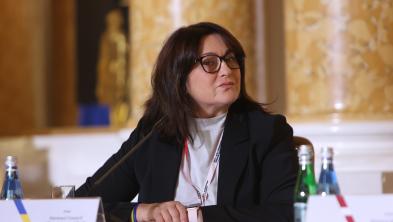
The Kremlin's fake news has lulled the vigilance of the free world for years
"Successive generations of Russians are growing up under the influence of false propaganda, that presents a deceitful picture of the modern world. This Kremlin's propaganda is reminiscent of the darkest Nazi or Soviet times. The Russians, drenched in fear and hatred, have not only invaded my country but are also constantly committing war crimes for which they will have to bear responsibility, explained Olha Herasymiuk, chairwoman of the National Broadcasting Council of Ukraine, during the first edition of the "Stop Disinformation and Russian Propaganda" summit at the Royal Castle in Warsaw.
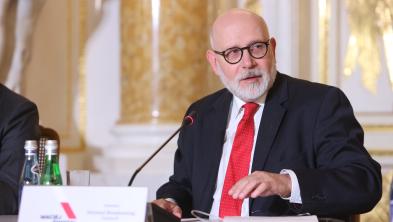
KRRiT chairman: disinformation is not only about the media, it is a social problem
Russia has a long tradition and practice in spreading propaganda, much more dangerous today, because the technologies used to disseminate it allow for actions on a much larger scale – pointed out Maciej Świrski, chairman of the National Broadcasting Council in the opening speech of the Anti Disinformation Warsaw Summit.
